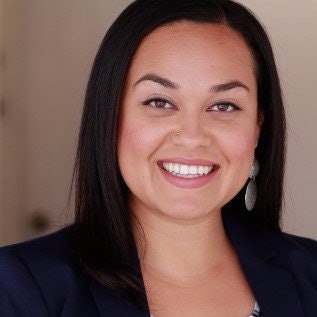My mother consistently asks, “When are you coming home?” which is usually followed by, “Do you just not want to come home?” For my mother, earning a Ph.D. meant that I would have the ability to return home because why else leave to attend graduate school?
My mother did not have the opportunity to attend college, but reinforced the importance of attaining a higher education throughout my life. While on the academic market, my mother’s frustration with me seem to be at an all-time high as it was unclear where I would end up. It was difficult to explain how the academic market worked and what a tenure-track position would mean for my career.
 Dr. Nichole Margarita Garcia
Dr. Nichole Margarita GarciaI even withheld information from her when an academic job appeared one day in my home state. Why would I withhold such information? I did not want to fail my mother or give her a sense of false hope that I may return home. It was not until after I secured my position that I shared with my mother that I interviewed at my alma mater and was not offered the position. Her response, “I guess it is not your time to come home.”
As an undergraduate I participated in group called Latina Telling Testimonios, which was modeled after the work of Dr. Rina Benmayor on digital storytelling at California State University, Monterey Bay. It was my first exposure to Latinas who had left home, and was a topic that we discussed often in the group.
There was a moment in this group that I remember so fondly. We had produced an anthology titled, “Unidas We Heal: Testimonios of the Mind/Body/Soul,” and were reading our contributions aloud. A Latina professor, Dolores Calderon, read her poem titled, I Am Going Home. She spoke, “I hear. The barely audible sound of a drumbeat like a heart, like the soft rolling thunder that echoes through the valley. I hear the drum beat louder, I hear the music, I hear the laughter, I smell the rain, I feel my tears, and I know — it’s time to go home, it’s time to go home.” At the time I did not understand what she meant. I heard her, but the sense of being able to resonate was not there until one day I left home too.
To leave home as an academic holds many complicated realities, but also opportunities to see and experience the unknown. I was the first in my family to leave home. I am often asked by Latina undergraduates and graduate students, how to leave home and how to cope with leaving? These questions I revisit often because for me the concept of home is intimate. Who, what, and how we define “home” differs for everyone, but for me to leave home meant leaving a piece of myself while at the same time having to recreate home. When I left, it was clear to me that academia was not the most welcoming space in which I could discuss my sense of loss from leaving my home and family. However, “home” does not need to be disconnected from educational institutions.
Dolores Delgado Bernal, in a seminal piece titled, “Learning and Living Pedagogies of the Home: The Mestiza Consciousness of Chicana students,” reminds us that the cultural knowledge we gain in our homes serve as assets that as students of color, and in this case, Chicanas bring with them to “survive and succeed within an educational system that often excludes and silences them.” As a graduate student this article allowed me to see myself and gave me the evidence I needed to confront my own discomfort in making connections between home and academia. Now as faculty, I have dedicated a lot my research and writing on the “concept of home” and the specific strategies and teachings we bring from what we define as home.
In the wake of a new academic year, I find myself in a new home. However, I know I am not alone. Whether we are students, staff, administrators, or faculty the concept of home will be and feel different. However, I encourage us to consider the possibilities of home in our respective academic communities.
Dr. Nichole Margarita Garcia is an assistant professor of higher education at Rutgers University, New Brunswick. You can follow her on Twitter @DrNicholeGarcia.
















